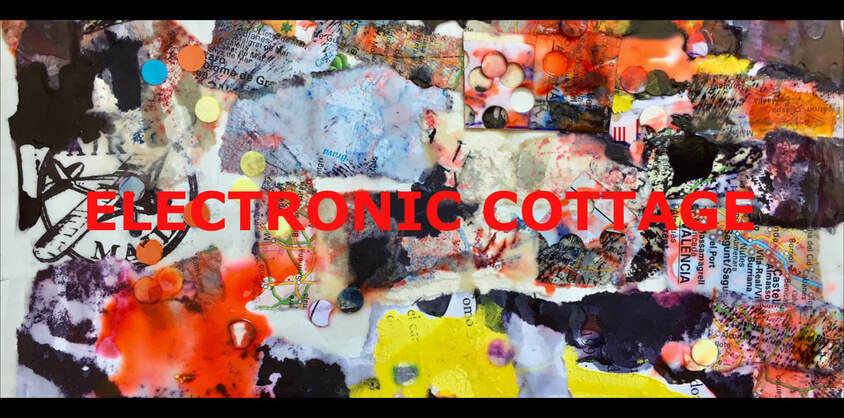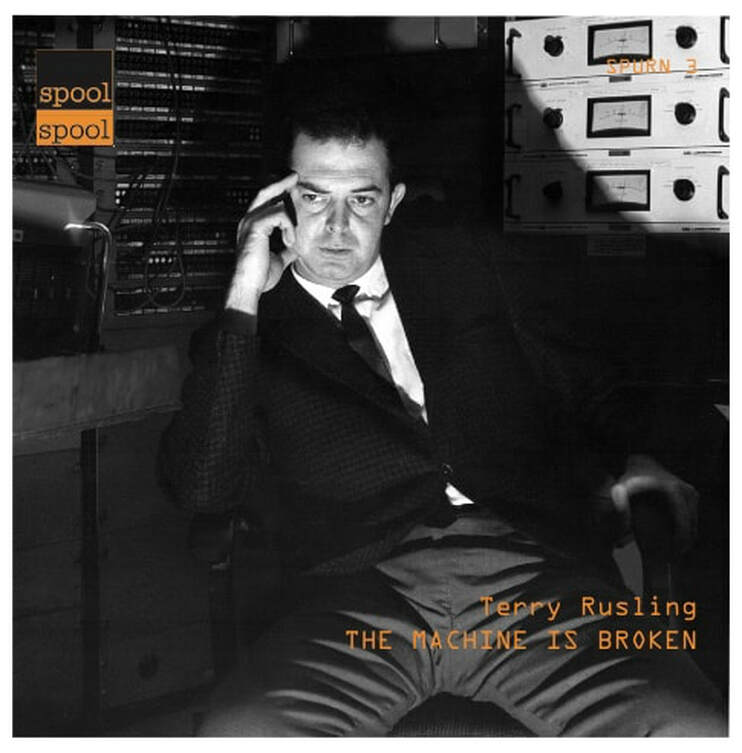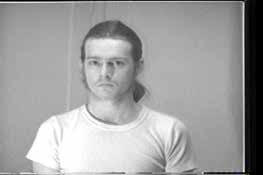|
I have been working for about a year with my friend David Porter to release a CD documenting the electronic composer Terry Rusling. He was influential to both of us and gave us three or four Deutsche Grammofon Avant Garde sets and encouraged our pursuits in music and visual art. We have spent the last year going through all his tapes and have released a CD of his music on my label Spool. Terry Rusling was a Canadian composer of electronic music. He also worked as an engineer for the Canadian Broadcasting Corporation (CBC).
Several of his works, including The Trains (1966), a piece of musique concrète, were broadcast on the CBC. Other projects included a CBC Radio program combining Rusling’s music with Earle Birney’s sound poetry. After the piece was performed they discussed their personal approaches to their art forms. A related collaboration with poet Gwendolyn MacEwen, combining poetry with electronic music, was also broadcast on CBC Radio. In another project, Rusling worked with English performance artist and sound poet Bob Cobbing. He composed incidental music for CBC Radio shows including an electronic theme for the CBC nightly television news and incidental music for TV shows, including the series Telescope; in particular, an episode on Marshall McLuhan (1967). His scores were submitted to John Cage’s Notations project and two items are included in Cage’s book. They demonstrate Rusling’s use of graphic notation.
8 Comments
|
dkI started doing experiments with tapes around 13. Me and some friends heard Firesign Theatre on the radio and attempted to make our own comedy on a portable cassette deck. A year after we got into reel to reel and into bands. Our band went from the blues to prog rock over 3-4 years. All the time me and my buddy Dave kept trying stuff on reel to reels. We were both visual artists but we were also in a rock band. Our musical tastes evolved to include free jazz and experimental music. My friend’s uncle had been an experimental composer who worked as an engineer at the CBC. He supported our interest in visual art but he also introduced us to avant garde music. He gave us 3 or 4 sets from the Deutsche Grammofon Avant Garde series. We started trying to do Stockhausen with household items, sewing machines, pots and pans, portable cassette decks. We all went to art school. I saw Cornelius Cardew perform, with students, a section of the Great Learning. After that was over he then rejected that music as bourgeois and then performed some of his Maoist folk songs at the piano. We also saw David Tudor’s Rainforest. He came and worked with the music students and they built it with him. When I was at York University, Richard Teitelbaum and David Rosenboom were on the music faculty. I took visual arts. The leader of the foundation course was George Manupelli. He was a member of the Once Group from Ann Arbor. He brought Robert Ashley as a guest and he performed during our mass lecture. Because I had already started doing pieces using sound and performance, my graduate TA introduced me to Ashley and he politely listened to one of my early experiments. Archives |



 RSS Feed
RSS Feed